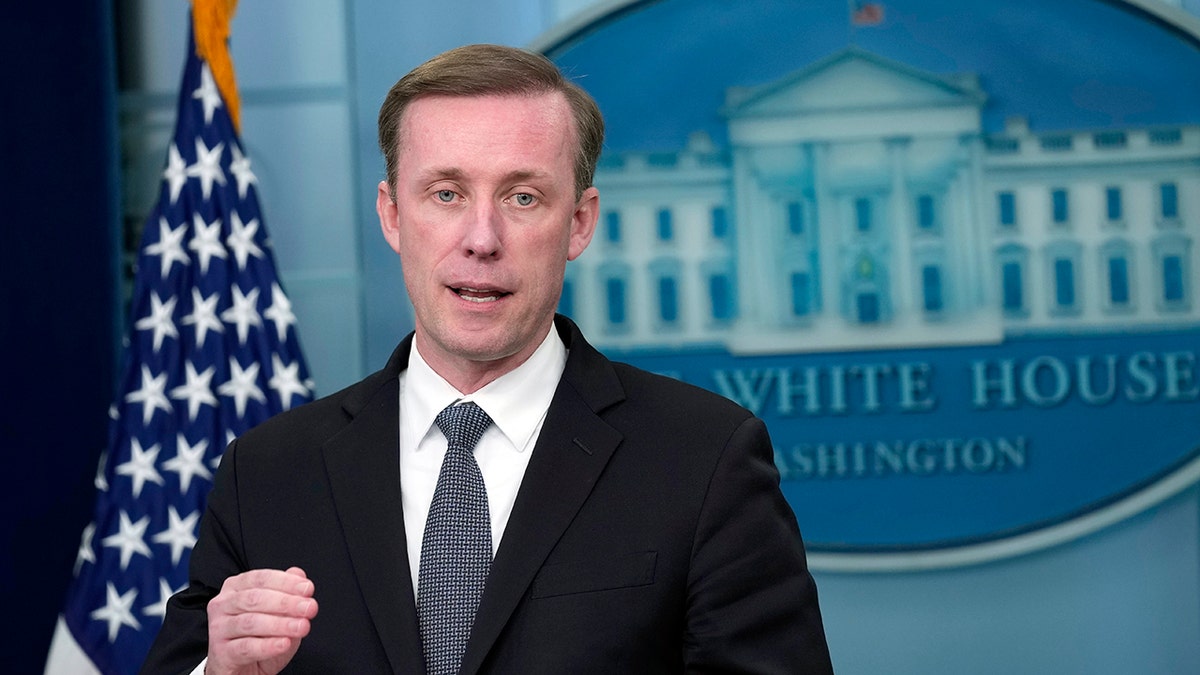Secretary of State Antony Blinken declared this week that the Middle East is in its most volatile state since 1973, a drastic change from the Biden administration’s tone on the region just months ago.
National Security Adviser Jake Sullivan stated in September that the Middle East was “quieter” then than it had been in two decades. Hamas’ Oct. 7 massacre in Israel occurred just days later, throwing the region into turmoil and posing a threat of wider war between the U.S. and Israel and Iran.
“I think it’s very important to note that this is an incredibly volatile time in the Middle East,” Blinken said during a joint press conference with NATO on Monday. “I would argue that we’ve not seen a situation as dangerous as the one we’re facing now across the region since at least 1973, and arguably even before that.”
“The Middle East region is quieter today than it has been in two decades,” Sullivan wrote in a Foreign Policy magazine article published just eight days before Oct. 7. “Now, challenges remain. Iran’s nuclear weapons program, and the tensions between Israelis and Palestinians, but the amount of time I have to spend on crisis and conflict in the Middle East today compared to any of my predecessors going back to 9/11 is significantly reduced.”
Secretary of State Antony Blinken says the Middle East is more volatile than it has been since the Yom Kippur war in 1973. (Photo by SAUL LOEB/AFP via Getty Images)
Late last year, NBC News’ Kristen Welker pressed Sullivan on how he and the rest of the Biden administration could have been “so far off the mark” when it came to the reality of tensions in the region.
ISRAEL TO BAN REBUILDING OF ISRAELI SETTLEMENTS IN GAZA FOLLOWING CONCERNS FROM BIDEN ADMIN
“Well, first, Kristen, I made those comments in the context of developments in the wider Middle East region over the last few years after two decades that involved a civil war in Yemen and a massive humanitarian catastrophe, a civil war in Syria and a massive refugee crisis, an invasion and insurgency in Iraq, a NATO military operation in Libya. Iranian-backed attacks on both Saudi and the UAE as well as many other steps including the rise of a terrorist caliphate that actually occupied a huge amount of territory,” Sullivan responded.
“It is true that those two threats remained a real challenge to the long term stability of the Middle East region and we’ve just seen this absolutely tragic attack, but at no point did the Biden administration take its eye off the ball of the threats to Israel. In fact, President Biden saw Prime Minister Netanyahu just weeks before this attack to discuss the security challenges facing the state of Israel and we continue to support them to as significant or greater an extent than any previous administration,” he added.
ISRAELI FORCES DESTROY HAMAS TUNNEL SYSTEM BUILT UNDER CEMETERY, IDF SAYS
Foreign Policy later updated Sullivan’s essay to remove the line claiming a “quieter” Middle East. It also added an editor’s note stating the passage had been “updated to address Hamas’s attack on Israel, which occurred after the print version of the article went to press.”

Foreign Policy later updated National Security Advisor Jake Sullivan’s essay to remove the line claiming a “quieter” Middle East. (AP Photo/Susan Walsh)
Another now-removed section of the essay claimed that the West Bank, not Gaza, posed the greater threat of conflagration between Israel and Palestinians.
CLICK HERE TO GET THE FOX NEWS APP
Months after Sullivan’s analytical blunders, President Biden is now considering what actions to take against Iran and its proxy terrorist groups following a lethal drone attack on U.S. forces in Jordan.
White House National Security Council spokesman John Kirby repeatedly insisted the administration does not want war with Iran, but he acknowledged Biden must walk a fine line in responding to the attack without further escalating the conflict.





